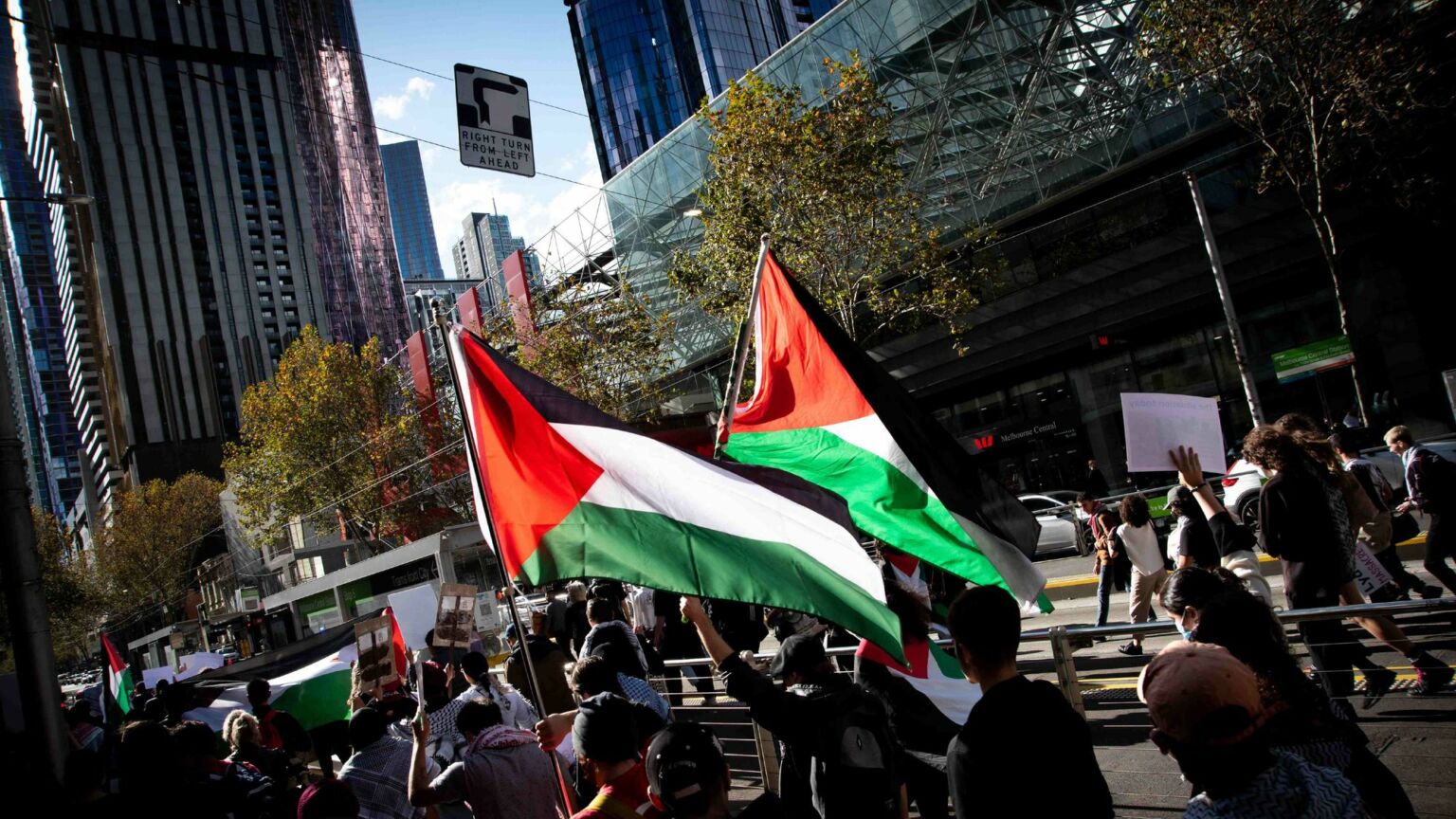Australia has a problem with Islamic sectarianism
The Muslim Vote campaign has cropped up Down Under.

Want to read spiked ad-free? Become a spiked supporter.
Sectarianism is playing a growing role in Western elections. In the UK, several ‘pro-Gaza’ independents were elected in former Labour seats in this month’s General Election. All of them were supported by an organisation called The Muslim Vote (TMV), and all stood as essentially single-issue candidates. Many others supported by TMV, such as Akhmed Yakoob in Birmingham Ladywood, reeled in huge support and came close to unseating prominent Labour MPs. These races were tainted by intimidation and harassment-heavy campaigning, largely directed at Labour candidates accused of being insufficiently critical of Israel.
Throughout the campaign, TMV made no attempt to appeal to non-Muslim voters. ‘This election signals a shift – Muslim issues at the forefront’, it said on its website during the campaign. ‘We will no longer tolerate being taken for granted. We are a powerful, united force of four million acting in unison.’ This unashamedly sectarian message was also reinforced after the election. In its boastful ‘analysis’, TMV said: ‘We take one step towards the almighty, and then his help comes raining down.’
It wasn’t all good news for TMV, however. It went on to say, with palpable disappointment, that ‘many in our community still decided to vote Labour… despite the shadow of Gaza hanging over us’. The implication of this statement is hard to ignore. Muslims, apparently unique among the voting public, shouldn’t make up their own minds on political issues and vote accordingly. Instead, TMV seems to be suggesting that elections should be a competition between religions – a fight to see which faith can mobilise adherents to vote for its chosen candidate. How could anyone with the faintest understanding of history think this is desirable?
The dark shadow of religious identity politics appears to be spreading across the West. In Australia, a new campaign group has emerged, also called The Muslim Vote, which mirrors its British counterpart almost exactly. The websites of the UK and Australia chapters are essentially identical.
TMV Australia has already begun selecting candidates for next year’s federal election. These are expected to challenge at least six Labor Party seats in Sydney and Melbourne, electorates with large Muslim populations. Frontbenchers Tony Burke and Jason Clare are considered at risk, while many in the government hold dim hopes for Peter Khalil’s seat in Melbourne’s inner-north.
Like its UK counterpart, TMV Australia’s pitch is solely directed at Muslim voters. The threat to politicians who fail to march to the beat of its anti-Israel drum is also echoed:
‘We will no longer accept being taken for granted. Australian Muslims are a powerful, united force of nearly one million acting in unison. The Muslim Vote alone is capable of forcing the current government into a minority government.’
If the UK General Election is anything to go by, this sectarianism could be a recipe for stoking hatred and division in Australia’s next elections.
Unsurprisingly, TMV Australia has thrown its support behind rookie senator Fatima Payman, a 29-year-old Muslim senator who quit the Labor Party a few weeks ago. Earlier this month, she was indefinitely suspended by Labor for repeatedly defying the party line, by accusing Israel of genocide, voting for an immediate ceasefire in Gaza and voting to recognise a Palestinian state. She even chanted ‘From the river to the sea’ in a speech in the senate.
Fortunately, Payman has since walked back from this flirtation with sectarianism, telling a podcast a few weeks ago that faith-based parties are a bad idea. She also ruled out supporting TMV candidates.
Nevertheless, it is surprising Payman even considered a sectarian turn in the first place. Of all people, she is uniquely placed to understand the dangers of faith-based political movements. When she was five, her family fled the Taliban in Afghanistan, before arriving in Australia as refugees. Her family showed incredible resilience – her father worked three jobs despite speaking little English and her mother even set up her own business. Meanwhile, Payman herself excelled in Australia’s school system. Had she remained in Afghanistan, she would have been denied an education entirely.
Payman shows what can be achieved in a country like Australia, where politics is based on shared interests, not religion. Hopefully, her refusal to fully embrace Islamic identity politics shows that the sectarian tide can be stemmed. Australia cannot let religious identity politics poison its democracy.
Hugo Timms is a writer based in Australia.
Picture by: Getty.
Who funds spiked? You do
We are funded by you. And in this era of cancel culture and advertiser boycotts, we rely on your donations more than ever. Seventy per cent of our revenue comes from our readers’ donations – the vast majority giving just £5 per month. If you make a regular donation – of £5 a month or £50 a year – you can become a and enjoy:
–Ad-free reading
–Exclusive events
–Access to our comments section
It’s the best way to keep spiked going – and growing. Thank you!









Comments
Want to join the conversation?
Only spiked supporters and patrons, who donate regularly to us, can comment on our articles.